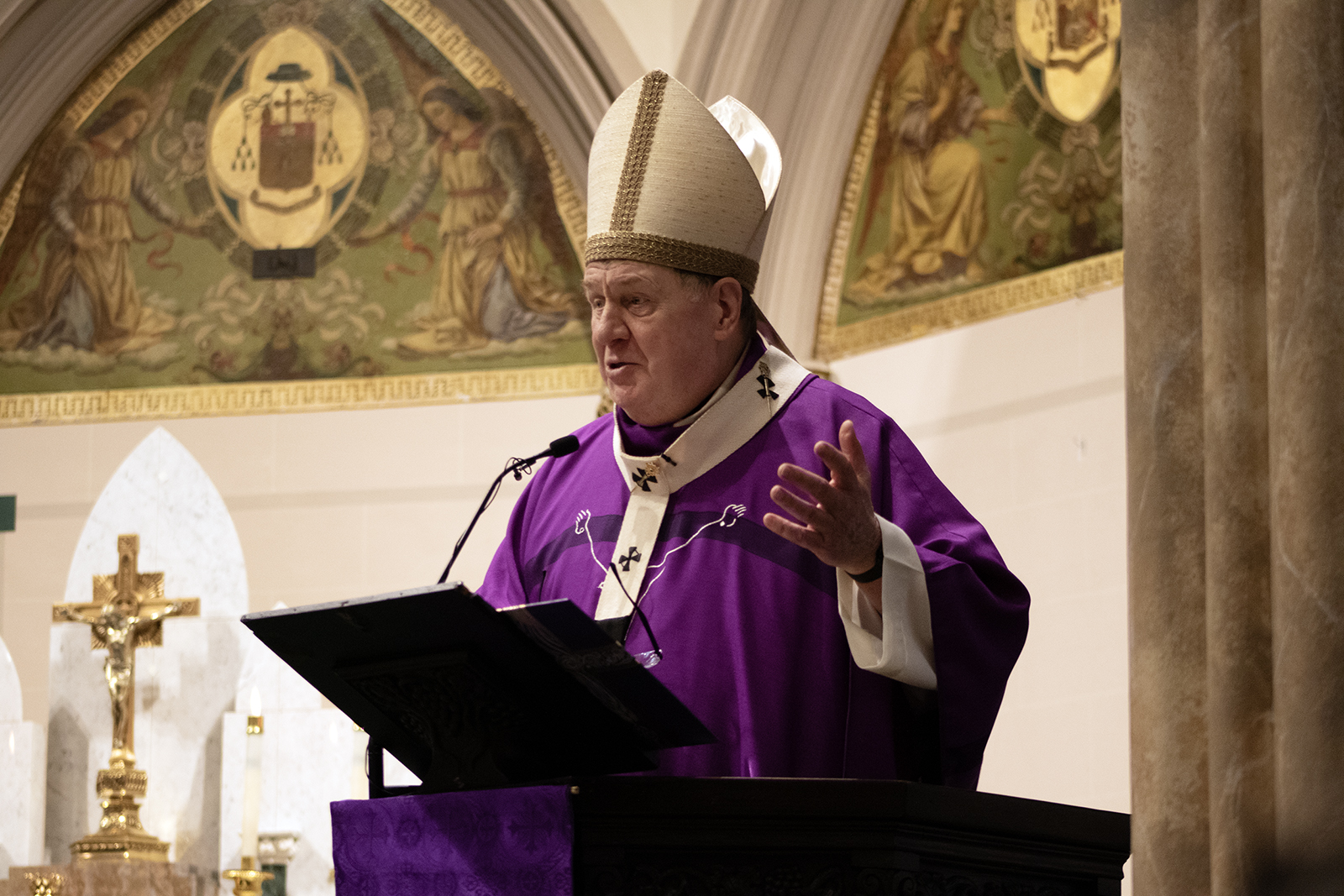BOSTON (RNS) — On Yom Kippur in 2024, one year after Israel began its fierce assault on Gaza, Rabbi Greg Hersh’s small Massachusetts synagogue voted to raise money to buy military gear for the Israel Defense Forces.
Hersh, a 40-year old graduate of the Reconstructionist Rabbical College, remembers feeling perplexed.
“This is the holiest day of the year,” Hersh remembers he told the synagogue’s board. “Do you really think we should be buying weapons for soldiers on this day?”
The board’s answer was a resounding yes. For Hersh, it was a sign that it was time for him to go.
Five months ago, Hersh started a new congregation called V’ahavtah, from the Hebrew, “You shall love.” Using the moniker “Judaism Beyond Zionism,” it meets in rented space, mostly in Cambridge.
Hersh’s new synagogue was among 30 mostly new Jewish organizations whose representatives came together to imagine a new Jewish future less defined by Zionism, if not entirely anti-Zionist, at the third annual Conference on the Jewish Left at Boston University last week (Feb. 12). Hosted by the university’s Institute on Culture, Religion and World Affairs, the conference drew nearly 1,000 people — 480 in person and the rest online.

Organizations like Hersh’s gathered in an exhibit hall to give out banners, books, stickers and other items to introduce participants to their post-Oct. 7 Jewish missions. The conference brochure announced, “None of us are free until all of us are free,” and participants milled about the conference wearing kippahs, or head coverings, featuring watermelons, the symbol of solidarity with Palestinians. Each of the main speakers in the big lecture hall offered a stinging rebuke of what they considered the American Jewish establishment’s unquestioning support for Israel and near complete disregard for Palestinian suffering.
But if the conference had a main theme, it was building new institutional containers for what they say is a more ethically grounded American Judaism.
In its 16 workshops, conference-goers considered building philanthropic infrastructure, creating theologies around the concept of exile and learning lessons from Jewish activists who helped build New York City Mayor Zohran Mamdani’s winning coalition.
RELATED: Amid ICE raids, Minneapolis rabbi and pastor show solidarity in action
Participants heard from Palestinian-born political activist Fadi Quran, who urged them to push ahead: “If we want to take ourselves seriously, not just to liberate Palestine, not just to liberate Jewish people from fear, but also to move towards a world that most humans everywhere truly want and yearn for, we need to build that institutional power,” he said.
More than 70,000 Palestinians have been killed during Israel’s invasion of Gaza, and most of the southern enclave has been demolished. The war has also ruptured a Zionist consensus among the majority of U.S. Jews. While most U.S. Jews increasingly supported Israel and the Zionist cause of building a Jewish state, especially after its decisive victory in the Six Day War in the late 1960s, a growing segment no longer does. A February survey by the Jewish Federations of North America found that only one-third of American Jews identify as Zionist, although almost 9 in 10 said they supported Israel’s existence as a Jewish and democratic state. And a Washington Post poll last year showed 61% of American Jews believe Israel has committed war crimes in Gaza.

As the JFNA poll suggests, U.S. Jews do not necessarily endorse the dismantling of Israel, but many argued at the conference that they no longer want to support what they consider a supremacist political project premised on a demographic Jewish majority that oppresses Palestinians.
Across the U.S., and especially in Boston, new institutions are slowly coming into being that reflect this change. They include dozens of budding congregations like V’ahavtah, consisting of Jews who no longer want to pray in synagogues that hoist the Israeli flag in their sanctuaries or recite the “Prayer for the State of Israel” during Shabbat services.
In Boston, there are also plans to open an alternative Jewish day school whose website proclaims it will “decouple Judaism from nationalism” and focus on the Torah’s mandate of justice. The school, which would be the first of its kind, expects to open in 2029 with a kindergarten class.
Leah Robbins, its 32-year-old founder, said she wanted to create a new model for Jewish day schools that could be replicated in Brooklyn or Berkeley, California.
“We need robust, thick Jewish education to be a real force in the conversation, to take back the monopoly on Jewish life from the mainstream, organized Jewish community,” said Robbins, who exhibited at the conference.
Nationwide, half a dozen congregations under the banner Synagogues Rising have publicly declared themselves committed to Palestinian liberation and have anti-Zionist rabbis. A new association for diasporic Jewish organizations is expected to be announced within the next few months.

Most of these new congregations say they strive for a “liberatory Judaism” that honors the inherent sacredness of all life and is rooted in core values of justice, equity and solidarity.
At the same time, many older U.S. Jews are not about to break away from their existing synagogues. Recognizing that reality, members from 26 established Massachusetts Jewish congregations formed a group to support individuals who want to open their synagogues to a more critical view of Israel. The Massachusetts Synagogue Network on Israel Palestine provides resources to help them push for change, foster respectful dialogue, start reading groups and create other learning opportunities. That group was also exhibited at the conference.
“These are folks who are not looking to blow up their relationships, but rather want to figure out how within the synagogues that they know and love, they can expand space for dialogue on this issue rather than ignoring it and turning away,” said Mneesha Gellman, one of the group’s members.
Younger Jews are not interested in fighting that battle. Rakeea Chesick Gordis, a 25-year-old program manager at a community building organization, joined Minyan Zayit, an anti-Zionist prayer group in Somerville, about 4 miles north of Boston. The group holds monthly Friday night services in a local synagogue, drawing some 70 people. It recently started a monthly Shabbat morning service. Its name uses the Hebrew word for “olive,” zayit, a symbol of Palestinian culture.
“It just feels like there’s this energy and thirst for a values-aligned community that is not exclusively about political organizing, but about being with people who hold the same truths as you,” she said.
Scholars say this younger generation is more interested in Jewish practice than their elders, many of whom disaffiliated and dropped out of Jewish institutions altogether.
“The progressive left is becoming more ritually and Jewishly engaged than a lot of the standard synagogues themselves,” said Shaul Magid, a professor of modern Jewish studies at Harvard Divinity School.
Hersh, the rabbi of V’ahavtah, sees this, too. The day after the conference, he held his monthly Friday night service — this time in a rented classroom at Massachusetts Institute of Technology. He spread out a kaffiyeh over a lectern. On top, he laid out Shabbat candlesticks and a laptop so he could livestream the service to people at home.
About 22 people showed up for the service, mostly in their 20s with a handful of retirees. They blessed the candles, the wine and two loaves of challah. They recited the traditional liturgy and some modern poems using a 25-page handout that Hersh provided. They ate a buffet-style vegan meal of Indian food: saag, tofu curry and rice.

Hersh said about a third of the participants were first-time guests who had heard about the congregation at the conference.
“The demand is so strong and the supply is so limited for communities like this,” he said. “There is this unserved Jewish population that should have the right to do Judaism, the ability, the access to Jewish ritual in the same way that every other Jew has access. And I’m really proud to be creating that.”
RELATED: ‘Jews against ICE’: Rabbis lead hundreds in mass Jewish protest outside ICE headquarters
 Sometimes we make mistakes; occasionally we make very serious mistakes. We get angry at ourselves. We kick ourselves for being “so stupid.” We wish we could undo what we’ve done....
Sometimes we make mistakes; occasionally we make very serious mistakes. We get angry at ourselves. We kick ourselves for being “so stupid.” We wish we could undo what we’ve done....
 If chutzpah is turning someone else’s triumph into your own political stage, the All-Star sideline delivered it — twice.
If chutzpah is turning someone else’s triumph into your own political stage, the All-Star sideline delivered it — twice. What I have is for you. Everything...
What I have is for you. Everything...








 We cannot ignore the extra soul God offers each week.
We cannot ignore the extra soul God offers each week.